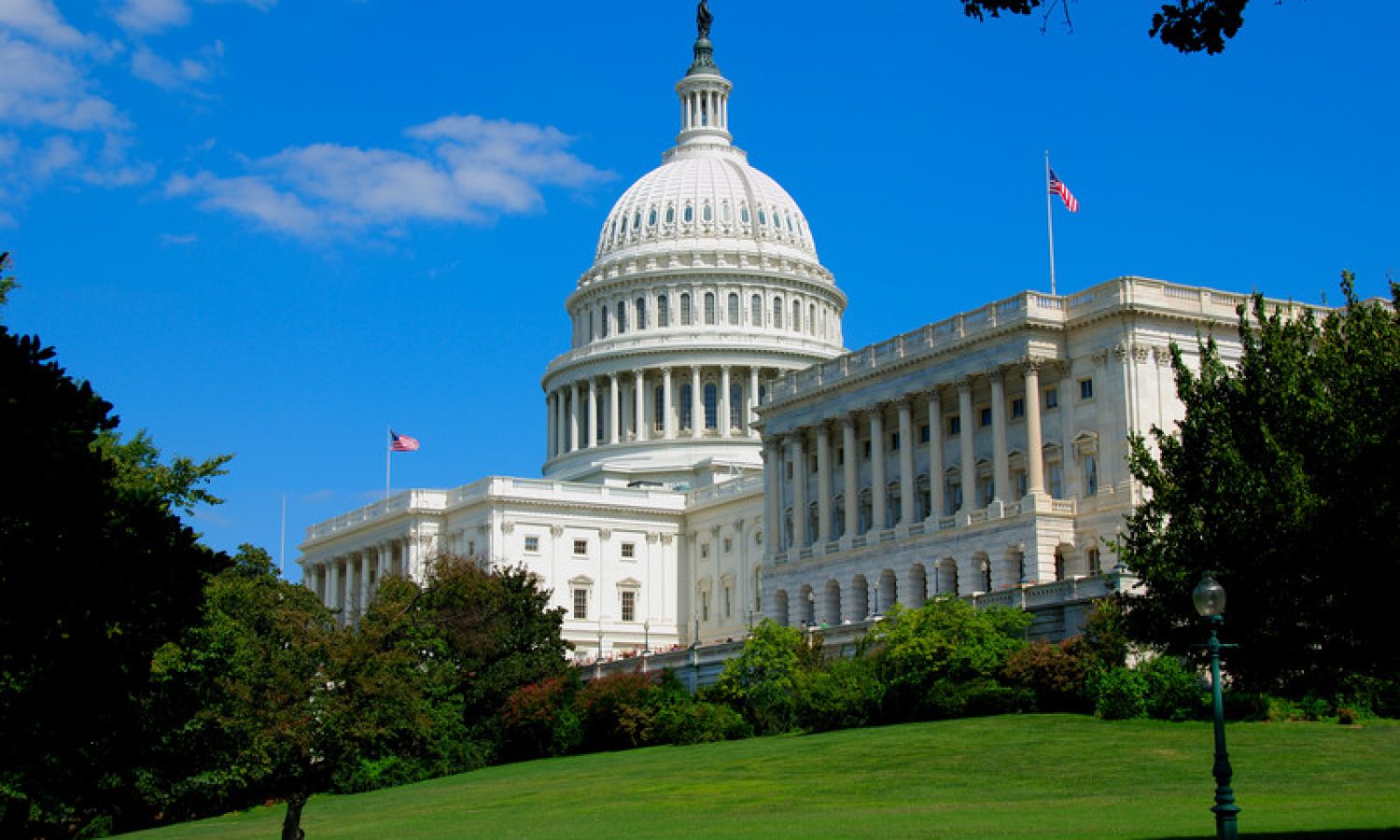i2Coalition April 2023 Legislative Brief
Your brief update on important Internet policy issues
OUTLOOK
The impending potential default of the United States looms over Washington as the standoff between House Republicans and President Biden over raising the debt ceiling continues. House Republicans unveiled budget-cutting and debt ceiling legislation and approved it on April 26 by a close 217-215 vote. The Republicans’ bill would raise the U.S. borrowing limit in return for major cuts in government spending that would significantly limit the Biden administration’s domestic policy agenda. The measure has no chance of passing in the Democrat-majority Senate, and President Biden opposes it. A razor-thin majority of House Republicans passed the bill as a symbolic first step in their negotiations with President Biden and Democrats in Congress on raising the debt ceiling. President Biden continues to publicly call for Congress to approve an increase in the debt ceiling without conditions attached and has said he is willing to negotiate separately with Congressional Republicans on budget matters. Without Congressional action to raise the debt limit by sometime this summer, the U.S. faces a potentially catastrophic default causing negative effects across the global economy. Going forward, Presidential 2024 election politics will play a larger and more visible role in other legislative and policy debates in Washington, especially in the House Republicans’ oversight efforts, now that President Biden officially declared on April 25 that he would seek reelection.
TECH POLICY PRIORITIES
Section 230/Intermediary Liability. The EARN IT Act was reintroduced on a bipartisan basis by Sens. Richard Blumenthal (D-CT) and Lindsey Graham (R-SC) in the Senate and in the House by Reps. Ann Wagner (R-MO) and Sylvia Garcia (D-TX) on April 19. The bill would exempt federal civil, state criminal, and state civil laws related to online child sexual abuse material from Section 230. The legislation’s re-introduction immediately sparked a renewed backlash against it by some public interest and technology advocacy groups. Among its flaws, they point out the threat that the EARN IT Act poses to the continued use of strong encryption. Also, on April 19, the Senate Judiciary Chair Dick Durbin (D-IL) introduced the STOP CSAM Act, which would allow victims of child sexual abuse to sue online platforms that intentionally, knowingly, recklessly, or negligently promoted or facilitated their exploitation and specifies that Section 230 would not apply to such lawsuits. The Senate Judiciary Committee intends to mark up both bills in early May. The House Energy and Commerce Committee Chair Cathy McMorris Rodgers (R-WA) and her Republican colleagues also plan to debate Section 230 reform legislation, including a focus on content moderation practices by large social media platforms resulting in alleged censorship of conservative political viewpoints.
Federal Privacy. The Senate Commerce Committee is expected soon to focus on children’s online privacy and safety legislation. Senators Blackburn (R-TN) and Blumenthal (D-CT) are working on re-introducing the Kids Online Safety Act (KOSA), which would require social media platforms used by children aged 16 and under to prevent the promotion of content encouraging harmful behaviors. On April 26, Senators Brian Schatz (D-HI) and Tom Cotton (R-AR) introduced the bipartisan Protecting Kids on Social Media Act to ban children under the age of 13 from using social media platforms; to prohibit platforms from using teens’ data to deliver algorithmic recommendations; and to require companies to explore “reasonable” age verification processes for use of social media sites. The authors of these Senate bills seek Senate Commerce Committee Chair Maria Cantwell’s agreement to consider and advance the measures in her committee.
Copyright/IP. The sudden, explosive growth in AI uses and research this year has sparked a wide-ranging debate about how intellectual property laws apply in specific cases. Both the Copyright Office and the U.S. Patent and Trademark Office are engaged in listening sessions discussing legal and policy issues arising from uses of AI.
Antitrust/Competition. Senators Amy Klobuchar (D-MN) and John Kennedy (R-LA) reintroduced the Journalism Competition and Preservation Act on March 30. The bill would allow small and mid-sized news organizations to negotiate jointly for compensation from large digital platforms, including Facebook and Google, that access their content. The bill also allows news publishers to demand arbitration if they reach an impasse in their negotiations with digital platforms. In the House, Rep. David Cicilline (D-RI), a leader of the antitrust legislative campaign against Big Tech in the prior Congress, and the Ranking Member of the Judiciary Subcommittee on the Administrative State, Regulatory Reform, and Antitrust, is leaving Congress in June. Another Democrat member of the House Judiciary Committee will be selected to serve as the next Ranking Member of that Subcommittee.
Broadband. The Senate Commerce Subcommittee on Communications, Media, and Broadband is planning a May hearing about the future of the Federal Communications Commission’s Universal Service Fund. Subcommittee Chair Ben Ray Luján has reintroduced bipartisan legislation–the “Funding Affordable Internet with Reliable (FAIR) Contributions Act”–that would direct the FCC to explore the feasibility of collecting universal service contributions from Internet edge providers. Both the FCC and the NTIA continue to respond to Congressional inquiries and criticisms about how the major federal broadband funding programs are being administered. The House Energy and Commerce Committee plans a May hearing on NTIA Oversight, during which discussions about the NTIA’s broadband program management are expected to figure prominently.
Find Out More…
For more in-depth updates on Internet policy, including issues that specifically impact your organization, please contact us about joining the i2Coalition.

